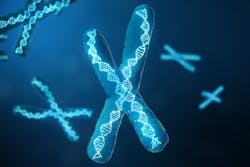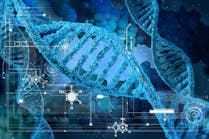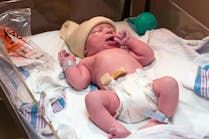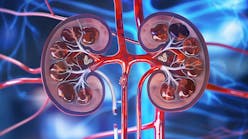Researchers from Children’s Hospital of Philadelphia (CHOP) have identified several genetic variants associated with increased risk of cancer in children with non-chromosomal birth defects, such as congenital heart disease and defects of the central nervous system. While the risk of developing cancer is not as high as children with chromosomal birth defects, it is significantly higher than children with no birth defects at all, and the findings may provide a basis for early detection in these understudied patients.
The findings were recently published in the journal Biomarker Research.
Children with birth defects are more likely to develop cancer, and that increased risk of cancer persists into adulthood. Prior studies have demonstrated that children with chromosomal birth defects, such as Down syndrome and Klinefelter syndrome, are more than 11 times more likely to be diagnosed with cancer than children without any birth defects. However, children with non-chromosomal birth defects are up to 2.5 times more likely to be diagnosed with cancer than those without birth defects. With birth defects of any kind occurring in 1 in every 33 births in the United States each year, that increased risk implicates a significant number of children.
In this study, researchers used data obtained from whole genome sequencing of blood samples from 1,653 individuals without chromosomal abnormalities that were acquired from the Kids First Data Resource Center. These samples included 541 birth defect probands – the first person in a family to receive genetic counseling or testing for hereditary risk of a disease – with at least one type of malignant tumor, 767 birth defect probands without malignant tumors, and 345 healthy family members who are parents or siblings of the aforementioned probands. Additionally, once variants were identified, whole genome sequencing data from 40 birth defect probands from outside the data resource center, including 25 patients with at least one type of cancer, were used to further validate the study.
The study identified thousands of variants of interest, including 119 genes with at least two variants in coding regions – regions of the gene that will eventually be transcribed and translated into proteins to carry out essential functions – and 478 genes with at least 20 variants in their non-coding regions. Five genes in particular – AXIN2, BMP1, CR1, ERBB2, and RYR1 – are associated with birth defects and increased risk of cancer. Additionally, the researchers built a deep learning model to assess the variants of interest identified in the Kids First cohort when compared with the 40 validation samples and found that they had achieved approximately 75% accuracy, with even greater accuracy for variants that were associated with non-coding regions.





